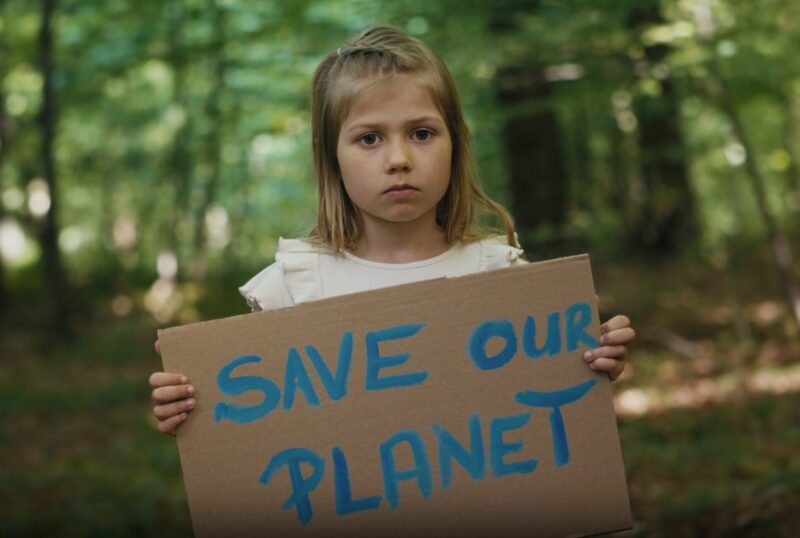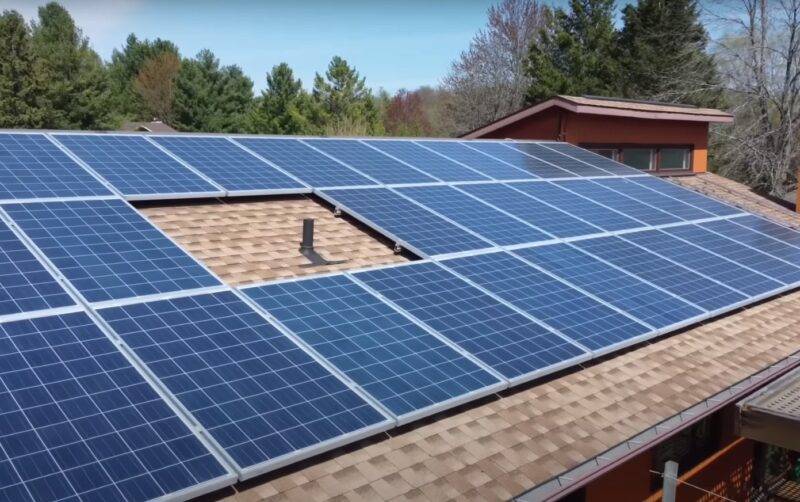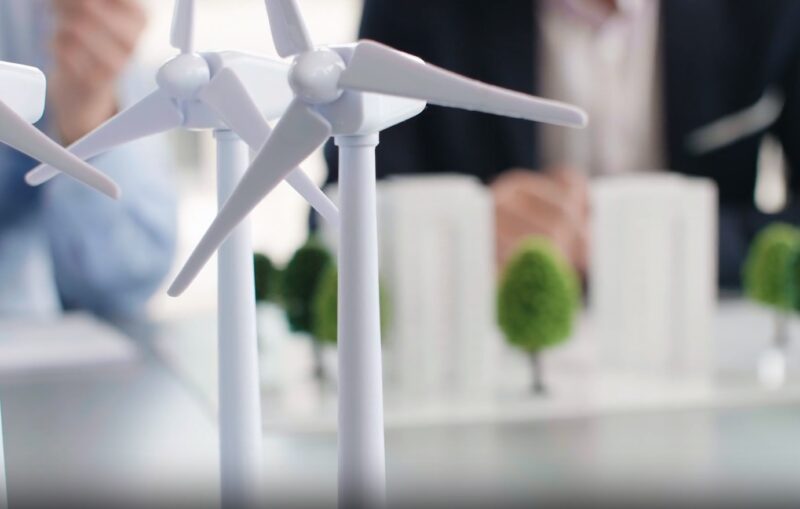In our quest for a sustainable future, the battle between renewable energy and fossil fuels takes center stage. With the planet’s health at stake, understanding the differences and impacts of these energy sources is more critical than ever.
In this post, I will walk you through the key facts about renewable energy and fossil fuels in simple terms, highlighting why the shift towards green energy is not just beneficial but essential.
[su_note note_color=”#ededed”]
Key Takeaways
- Renewable energy is cheaper and cleaner than fossil fuels, with solar projects generating power at about half the cost after construction.
- Advances in technology have made renewable sources like wind and solar more reliable, offering a viable alternative to fossil fuels.
- Shifting to renewable energy reduces CO₂ emissions, combating global warming and contributing to a healthier planet.
- The renewable energy sector is driving economic growth, creating jobs, and promoting energy independence.
- Public support and government subsidies are crucial for accelerating the transition to renewable energy, securing a sustainable future.[/su_note]
What Is Renewable Energy?
Renewable energy comes from sources that nature replenishes quickly, like the sun, wind, and water.
Unlike fossil fuels, which take millions of years to form, renewable sources are abundant and readily available.
Solar panels capture sunlight, wind turbines harness the breeze, and hydroelectric plants use flowing water to generate electricity.
These technologies are paving the way for a cleaner, more sustainable energy landscape.
Why Is Renewable Energy Cheaper?
- Low Operational Costs: Once renewable energy projects are up and running, they have lower operational costs compared to fossil fuels. For instance, solar energy projects can generate electricity at about half the cost of fossil fuels after construction.
- Government Subsidies: Financial support from governments makes renewable energy more affordable, encouraging investment and development in green technologies.
What Are Fossil Fuels?
Fossil fuels, including coal, oil, and natural gas, are formed from the remains of ancient plants and animals.
These sources have powered human civilization for centuries but come with significant downsides, such as pollution and a finite supply.
The extraction and combustion of fossil fuels release large amounts of CO₂, contributing to global warming and climate change.
The Environmental Impact of Energy Choices
Renewable energy sources emit far less CO₂ than fossil fuels, making them a cleaner option for our environment.
The shift to green energy is vital in reducing our carbon footprint and combating climate change.
Renewable Technologies: Leading the Way to a Sustainable Future

Wind power, solar energy, and hydroelectric power are at the forefront of replacing fossil fuels.
With advancements in technology, renewable energy is becoming more reliable and efficient, offering a promising path to a sustainable future.
How Do Renewable Technologies Compare to Fossil Fuels?
- Reliability and Efficiency: Renewable technologies have seen significant improvements, making them more reliable over time. Solar panels and wind turbines are now capable of generating electricity more efficiently, even in less-than-ideal conditions.
- Economic and Environmental Benefits: Investing in renewable energy not only reduces environmental impact but also creates job opportunities, drives economic growth, and promotes energy independence.
The Role of Renewable Energy in the Energy Sector

Despite the growth of renewable energy, fossil fuels continue to dominate the energy sector.
However, the tide is turning. Utility providers are increasingly investing in renewable sources, recognizing their long-term benefits and potential to revolutionize the energy market.
What’s the Current State of Renewable vs. Fossil Fuel Energy?
- Energy Generation: In the US, renewable energy generation reached a record 22 gigawatts of capacity in 2016, outpacing the growth of fossil fuels.
- Public Opinion: A significant majority, 77% of Americans, believe developing renewable energy sources is more important than relying on fossil fuel reserves.
The Economic and Environmental Advantages of Green Energy

The shift to renewable energy is not just about protecting the environment; it’s also a smart economic move.
Green energy offers a future-proof solution, promising long-term sustainability and resilience.
By reducing dependence on finite resources, countries can achieve greater energy security and foster economic growth.
How Does Renewable Energy Benefit the Economy?
- Job Creation: The renewable energy sector is a burgeoning field, offering diverse career opportunities and contributing to job market growth.
- Energy Efficiency: Renewable sources are more efficient in terms of energy consumption, leading to savings for consumers and businesses alike.
What Advancements to Expect?
Discuss the potential future of energy consumption globally, emphasizing the role of renewable energy. Highlight how renewable energy can lead to a more sustainable and environmentally friendly future compared to the continued use of fossil fuels.
- Global Trends in Energy Transition: Examine how countries around the world are shifting towards renewable energy, setting ambitious targets to reduce carbon emissions.
- Technological Innovations in Renewable Energy: Explore the latest advancements in renewable technologies, such as improved battery storage, which are making renewable energy more viable and reliable.
How Can Individuals Contribute?

Provide practical advice on how individuals can support the transition to renewable energy in their daily lives.
- Adopting Renewable Energy at Home: Tips for using solar panels, wind energy, or green energy providers.
- Reducing Energy Consumption: Simple ways to decrease personal energy use, which contributes to the overall demand for fossil fuels.
FAQs
Can renewable energy truly replace fossil fuels?
Yes, with continuous advancements in renewable technologies and increasing support from governments and the public, renewable energy has the potential to fully replace fossil fuels.
The transition requires time, investment, and commitment but is crucial for a sustainable future.
Is renewable energy reliable enough for our needs?
Absolutely. Renewable energy sources like solar and wind are becoming more reliable and efficient, capable of meeting our energy demands. The key is to diversify energy sources and improve storage solutions to ensure a steady supply.
Can renewable energy provide enough power for big cities?
Yes, it can power big cities. Advances in technology and grid management allow cities to rely on renewables for a significant portion of their energy needs.
Do renewable energy sources work at night or without wind?
Solar panels don’t produce energy at night, and wind turbines need wind to operate. However, energy storage technologies and grid diversification ensure a constant energy supply.
How long does it take for renewable energy systems to pay for themselves?
The payback period varies by technology and location but typically ranges from 5 to 15 years for solar panels, thanks to savings on energy bills and government incentives.
Can I use renewable energy in my apartment?
Yes, even apartment dwellers can use it by subscribing to green energy programs offered by their utility or investing in portable solar devices.
Are renewable energy jobs well-paying?
Yes, jobs in this sector often offer competitive salaries comparable to or exceeding those in traditional energy sectors, especially in engineering, installation, and maintenance roles.
Does switching to renewable energy require a lot of maintenance?
Renewable energy systems like solar panels require minimal maintenance, mainly regular cleaning and occasional checks by professionals, making them low-maintenance options.
Final Words
The comparison between renewable energy and fossil fuels underscores the importance of transitioning to green energy.
Renewable sources offer a cleaner, cheaper, and more sustainable alternative, essential for our planet’s health and our future.
Embracing renewable technologies and reducing reliance on fossil fuels, allows us to pave the way for economic growth, environmental preservation, and energy security.
The choice is clear; the time for action is now.
